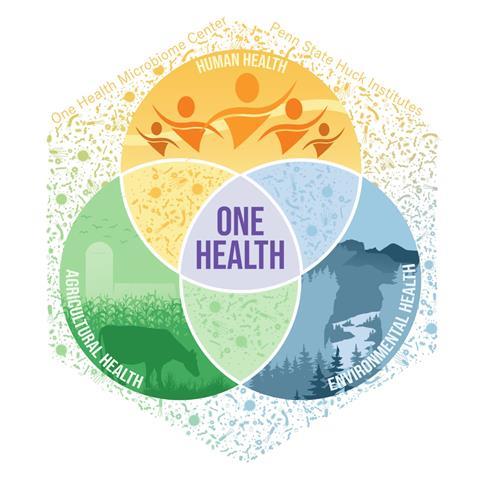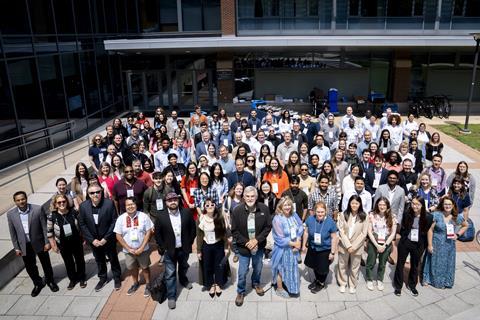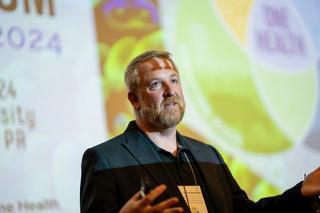The One Health Microbiome Center at Penn State has been named as this year’s winner of the WH Pierce Global Impact in Microbiology Prize 2024.

The WH Pierce Global Impact in Microbiology Prize, sponsored by Thermo Fisher Scientific, acknowledges and celebrates individuals, teams, or organisations that have made groundbreaking contributions to global challenges through applied microbiology. This award encompasses a broad spectrum of the United Nations Sustainable Development Goals (SDGs), illustrating the versatile and wide-ranging impact of microbiology in various global contexts.
The prize is part of the Applied Microbiology International Horizon Awards, which celebrate the brightest minds in the field and promote the research, groups, projects, products, and individuals who continue to help shape the future of applied microbiology. “We are so delighted to be able to present this well-deserved award to the One Health Microbiome Center, in recognition of all the groundbreaking work that they have carried out to address global challenges using microbiology,” said AMI chief executive Dr Lucy Harper.
Engine of impact
In a relatively short period, the One Health Microbiome Center at Penn State University and its Huck Institutes of the Life Sciences has established itself as an engine of impact in applied microbiome research and education. It is one of the largest and most active units in the field with a mission to optimize, advance, and disseminate long-lasting microbiome applications and knowledge.
Established in a grassroots movement in 2016, the Center is now a unique destination with broad depths of scale for harmonizing expertise with an integrative One Health vision that unsiloes the microbiome sciences. As microbes serve as the foundation of agricultural, environmental, and human ecosystems, the Center recognizes that the flow of microbes through these ecosystems shapes the risk of health and disease and fosters long-term working relationships with leading university, science education, and industry partners locally, nationally, and worldwide.

The Center’s partner-to-empower model has led to the world’s first named microbiome center with the One Health theme, first Microbiome Sciences PhD accreditation via a dual title PhD program, the largest bacteria repository at the E. coli Reference Center, a leading industry-academic partnership with QIAGEN, and a top science education series, Discover the Microbes Within! The Wolbachia Project, that connects with 18 minority serving institutions.
Impact through unity
The Center is a founding member of the national Microbiome Centers Consortium and the International Holobiont Biology Network. It was renamed as the world’s first One Health Microbiome Center in the spring of 2023 to recognize its broad impacts on the microbiome sciences.
With over 550 members, including 125 faculty and 160 graduate students from 42 departments, the Center’s impact through unity stems from a large organization and strong leadership in validating microbiome research and education as a bona fide discipline within biology to meet the workforce and innovation needs of the microbiome revolution. The One Health Microbiome Center exemplifies its university motto of “making life better” through significant contributions to applied microbiology.
“The 2024 WH Pierce Global Impact in Microbiology Prize is the first to recognize the body of scholarship by a Center rather than an individual or two,” said Professor Seth R. Bordenstein, Director of the One Health Microbiome Center. The Center was founded under the inaugural directorship of Carolee Bull, who served from 2016 to 2022 with an esteemed Executive Committee and a hiring spree of microbiome scholars. The Executive Committee is composed of faculty from 13 departments including Arts and Architecture, Anthropology, Biomedical Sciences, and Plant Sciences, among many others.
Thought leader
Seth Bordenstein, a distinguished thought leader who has studied host-microbe-virus symbioses for three decades, began his directorship tenure in 2022 as the second Director of the One Health Microbiome Center. Bordenstein orchestrated and oversaw an expansion of resources and reputation for the Center to serve the state, national, and international communities.

Bordenstein’s philosophy in science and education is to decipher the important keystones that we should already know about in textbooks or apply in the clinic and classroom, and his research specialties span the extraordinary utility of microbes to control mosquito-borne diseases, the secrets of microbiome diversity across the diversity of humans, and the major trends of host-associated microbiomes across the animal kingdom.
Standard bearer
Today and into the future, the Center will serve as a standard bearer for unsiloing the microbiome sciences to usher in a conventionalized, accredited, and fundamental subdiscipline of biology by building interdisciplinary collaborations for long-lasting impact.
“The Center deeply values this attribution and recognizes that an awarded organization turns the page on prize culture that too narrowly rewards individuals who overshadow the collaborative nature of scientific progress. It is time to recognize the contributions of a wider range of scientists, educators, and artists – the teams that truly fuel the growth of microbiome sciences and applied microbiology over the last two decades – leading global impact at large and multidimensional scales.”
To find out more about AMI’s grants and awards, click HERE.
Topics
- Applied Microbiology International
- Community
- Events
- Huck Institutes of the Life Sciences
- Human Microbiome
- International Holobiont Biology Network
- Lucy Harper
- Microbiome Centers Consortium
- One Health Microbiome Center
- Penn State
- People News
- QIAGEN
- Seth R. Bordenstein
- Thermo Fisher Scientific
- USA & Canada
- WH Pierce Global Impact in Microbiology Prize
- Wolbachia







No comments yet